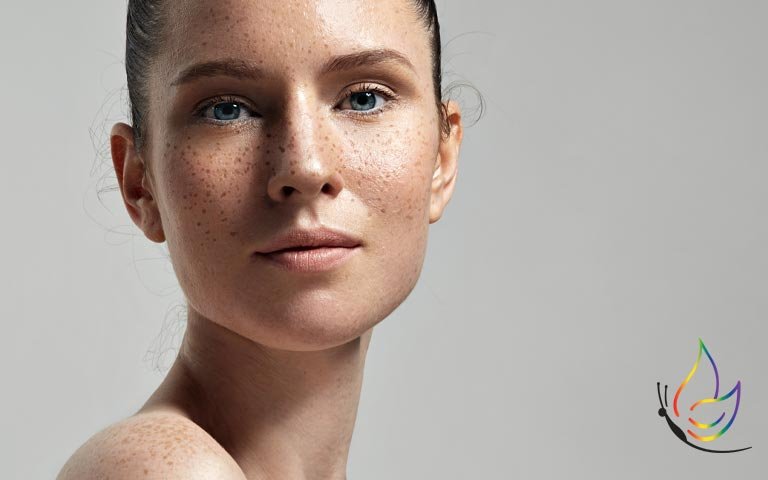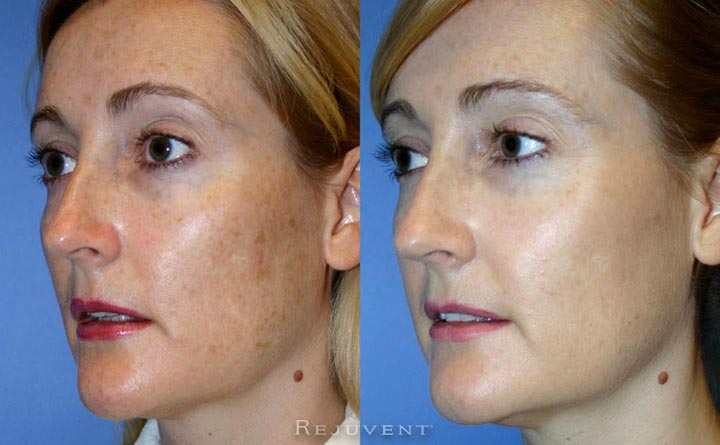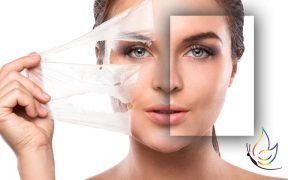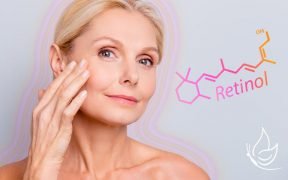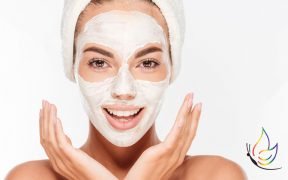Before we learn what causes hyperpigmentation let’s learn about skin pigment and hyperpigmentation buzzwords: Melanocytes, Tyrosinase, and Melanin.
In our skin, we have cells responsible for producing pigment. These cells are called Melanocytes. An enzyme inside the Melanocytes, called Tyrosinase is responsible for the formation of Melanin. This is the pigment that colors your skin, your hair, and your eyes.
Most medical grade lighteners and brighteners ingredients in skin care work by inhibiting (or stopping) Tyrosinase from starting the Melanin production.
How Does Hyperpigmentation Happen?
Hyperpigmentation happens when there is an overproduction of Melanin in one spot or patches on the skin.
This Rejuvent patient was prescribed a skin care regimen with skin brightener ingredients such as Retinol, Vitamin C, and Hydroquinone. She also had Photofacials, Microneedling and Chemical Peel treatments. Her skin in the image taken after treatment is brighter, more radiant, has much better tone and texture and her hyperpigmentation has faded
What Causes Hyperpigmentation?
The main causes are:
Sun Exposure
When your skin is exposed to the sun and its UV radiation, it triggers a protection mechanism in the form of increased Melanin production, this causes the skin to darken creating a tan look. When your skin is tanned, it is in fact damaged.
Post-Inflammatory Hyperpigmentation (PIH)
Occurs as a response to a skin injury or trauma. When the skin heals it leaves a flat area of discoloration behind. This type of hyperpigmentation is common with acne, Eczema, Psoriasis, and Atopic Dermatitis. It can also be triggered by cosmetic procedures such as dermabrasion, laser treatment, and chemical peels.
Hormones
Changes in hormones can cause Melasma, which looks like large patches of dark skin. Melasma is a hard to condition to treat but at Rejuvent, we have proven effective treatments to completely transform your skin.
Genetics
Some of us have the overproduction of melanin encoded in our DNAs.
How to Treat Successfully Hyperpigmentation?
It is important to realize that pigmentation is an ongoing process. Pigments are constantly being made and you will need a multifaceted approach to keep it under control!
1. Skincare: Inhibit Tyrosinase and the Melanin production forming in the first place. Brightening ingredients work by blocking different steps of the melanin production pathway. Some of these ingredients are Hydroquinone, Kojic Acid, Azelaic Acid, Lactic Acid, Tranexamic Acid, Niacinamide and Alpha Arbutin. Shop Brighteners
2. Skincare: Exfoliate the skin and remove Melanin deposits and increase cell turnover so pigmented cells get replaced with new cells. Some of the ingredients are Retinol, Vitamin C, Glycolic and Salicylic Acids. Shop Exfoliators
Skincare: Use antioxidants to brighten and protect the skin against UV damage. Some of the ingredients are Vitamin C, Ferulic Acid, Phloretin, Resveratrol, etc. Shop Antioxidants
3. Skin Treatments: Chemical Peels – They exfoliate the skin at a deeper level and peel away superficial pigmentation.
Skin Treatments: Remove melanin deposits with lasers such as FotoFacial IPL (intense pulsed light) which shatters melanin pigment granules. Target Post-inflammatory hyperpigmentation such as acne scars with eMatric Fractional Resurfacing.
At Rejuvent, we have proven treatments and techniques to prevent and treat hyperpigmentation. Call 480-889-8880 for your appointment.

